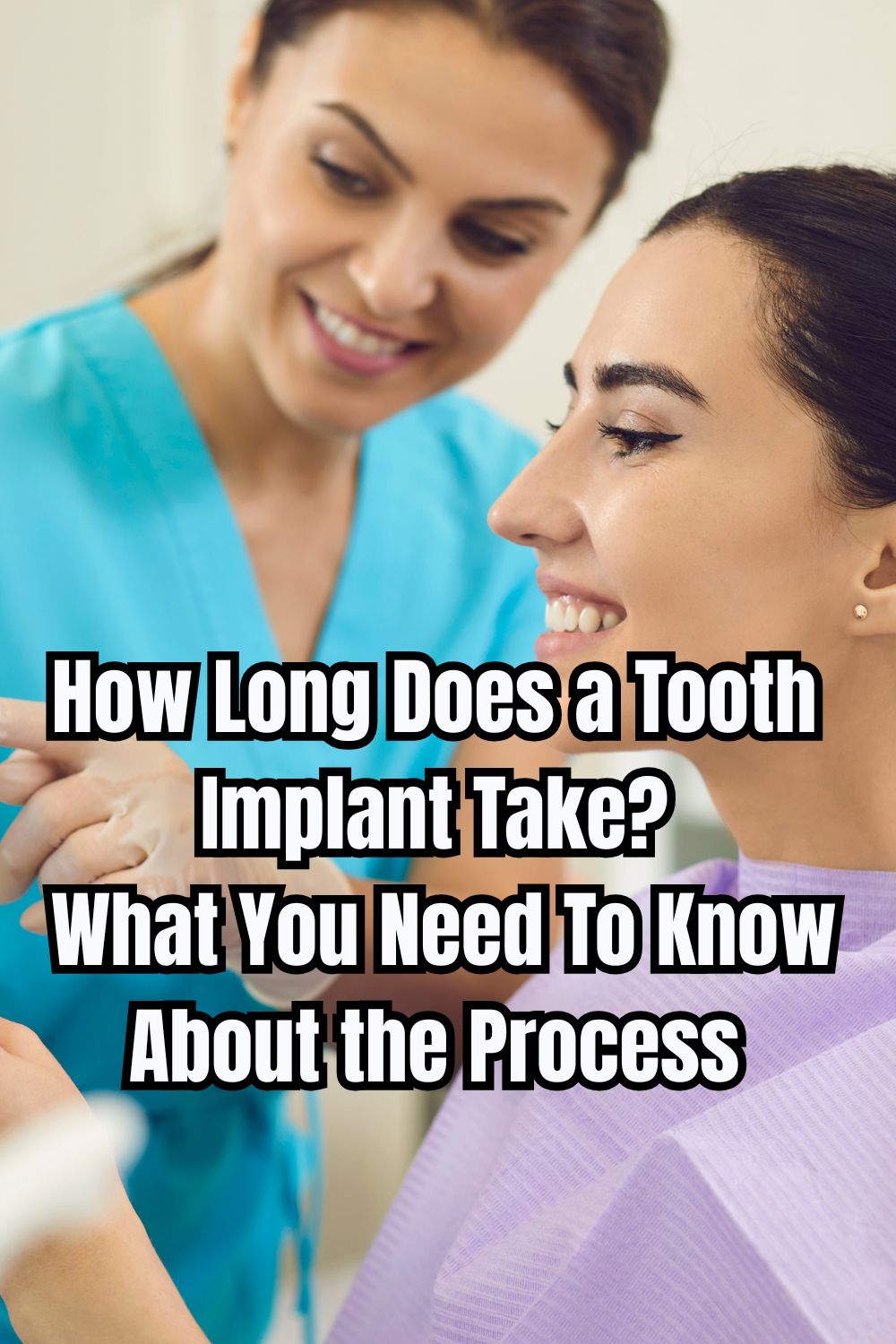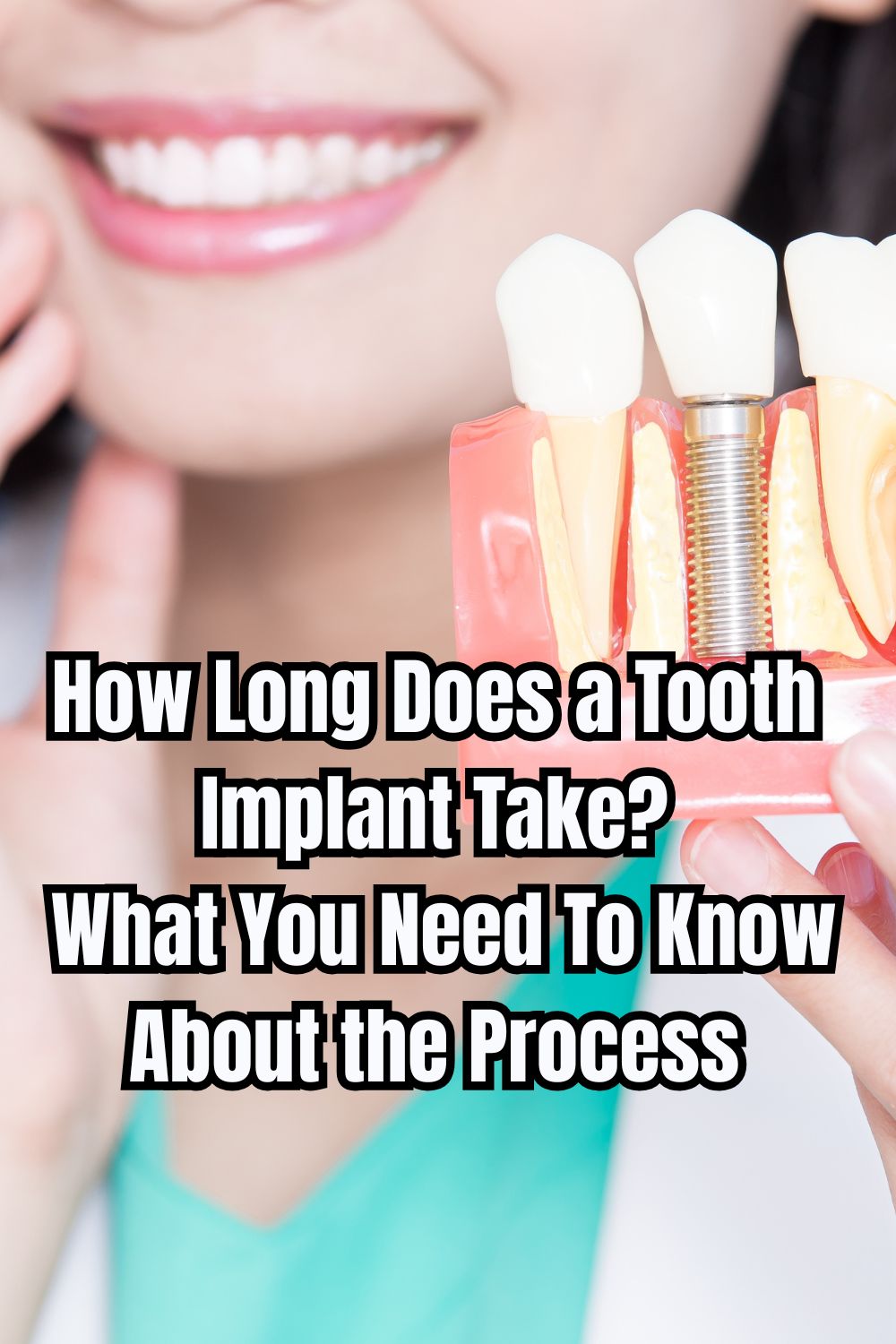Are you looking to do tooth implants? Find out how long does a tooth implant take as well as what you need to know about the process.
How Long Does a Tooth Implant Take? What You Need To Know About the Process
Modern dentistry’s answer to tooth loss is implants, which deliver a permanent, biologically compatible replacement option. While bridges and dentures can be adequate replacements, implants provide superior stability while giving teeth a natural look, feel, and function. However, the dental implant process is not instantaneous—it requires multiple steps and careful planning.
If you’re considering dental implants, you likely have questions about the duration of treatment, recovery times, and what to expect at each stage. This guide breaks down the entire process, from initial consultation to final crown placement, so that you can make an informed decision. Read on to learn more!
Step 1: Initial Consultation and Treatment Planning
Before any surgical procedures begin, your implant dentist will conduct a thorough assessment, including:
- A review of your medical history and oral health
- X-rays and CT scans to evaluate jaw bone density
- A discussion of treatment options and personalized treatment plan
For patients with extreme bone loss, a bone graft procedure may be necessary to ensure that the implant post is adequately supported. This procedure will add to the total tooth implant recovery time as proper healing is crucial for the long-term success of the implant.
Step 2: Preparatory Procedures (If Needed)
Not everyone requires bone grafting, but if your jaw lacks sufficient bone volume due to gum disease or tooth loss, a bone graft or sinus lift may be recommended. These additional treatments add to the overall duration of treatment, as the graft needs time to integrate with your natural bone—typically four to six months. Illinois residents from the western suburbs of Chicago often learn consult Dr Asadi from Elmhurst to better understand whether preparatory procedures are necessary before moving forward. This guidance helps patients set realistic expectations about timelines while feeling informed throughout each phase of treatment.
Step 3: Implant Placement
At the heart of the procedure is the surgical insertion of a titanium implant post that integrates with your jawbone, creating a stable foundation like a natural tooth root. Procedures like all on four dental implants restore a full arch using four strategically placed titanium posts, providing stability while reducing the total number of implants needed. Each post is carefully positioned to support the entire arch, ensuring a secure, natural-looking smile.
This minor surgery is usually done under local anesthesia and takes about one to two hours per implant.
While your implant biologically bonds with the jawbone over several months (a process called osseointegration), you’ll be fitted with provisional teeth to serve your daily needs until the permanent restoration can be placed.
Step 4: Abutment Placement and Crown Attachment
The implant requires a healing period of three to six months to fully integrate with your jawbone – a biological process known as osseointegration. While you wait for permanent restoration, temporary replacement teeth help maintain both appearance and oral function.
Factors Affecting Treatment Time
The length of your treatment time depends on several key factors:
-
- Bone quality and quantity: If your jawbone lacks sufficient density due to bone loss, a bone graft or sinus lift may be needed, adding four to six months to the treatment timeline. Patients with healthy bones can often proceed directly to implant placement.
- Healing speed: Some people experience rapid healing, while others require more time for bone integration. Smoking, diabetes, and certain medications can slow down recovery.
- Type of implant used: Traditional implants require a healing period of three to six months, but same-day implants or mini implants (for patients with less bone density) may shorten the process.
- Additional procedures: Complex cases requiring bone augmentation, sinus lifts, or extractions will extend the overall treatment time compared to straightforward implant placements.
- Oral health status: Gum disease or infections must be treated before implant surgery, which can delay the process. Proper oral hygiene helps ensure a smoother, faster recovery.
Your implant dentist will carefully examine these elements during the initial evaluation to give you a tailored treatment timeframe.
Recovery and Aftercare
Following dental implant surgery, proper care ensures a smooth recovery. Key post-operative care instructions include:
-
- Being careful with chewing and eating soft food during the initial healing phase
- Avoiding strenuous activities
- Maintaining excellent oral hygiene practices
- Attending follow-up appointments
Patients commonly notice minor bleeding, puffiness, and soreness for 24-72 hours after surgery. These are normal healing responses that usually respond well to ice therapy and common pain relievers.
Long-Term Success of Dental Implants
Despite the 95% success rate, the lifespan of dental implants may vary depending on:
-
- Oral hygiene practices: Implants thrive with the same care regimen as natural dentition: twice-daily brushing with proper technique, interdental cleaning once daily, and antimicrobial rinses help prevent destructive gum diseases that can compromise osseointegration.
- Regular dental check-ups: Dental cleanings every six months will help your dentist stay on track when it comes to monitoring the health of your gums and implants catching potential issues like inflammation or bone loss early.
- Lifestyle choices: It’s best to refrain from smoking and excessive alcohol consumption as they can be detrimental to healing and increase the risk of complications, such as peri-implantitis (infection around the implant).
- Bone health: Since implants rely on jawbone support, maintaining bone density through a balanced diet (rich in calcium and vitamin D) and addressing conditions like osteoporosis is crucial.
- Proper bite alignment: An uneven bite can place excessive pressure on the implant, leading to wear or failure. If you have bruxism, your dentist may recommend a nightguard.
You can keep your dental implants for many years, provided you care for them well. Investing in good oral hygiene and following your dentist’s recommendations ensures your implants remain a successful, permanent solution.
Conclusion
While the dental implant process may require some time, the lasting benefits make it a worthwhile investment. By working with a qualified dentist and following post-operative care instructions, you can enjoy a confident smile and restored oral function for years to come.
If you’re considering implants, consult an experienced dentist to discuss your personalized treatment timeline and explore whether you’re a suitable candidate for this life-changing procedure.


Leave A Reply!